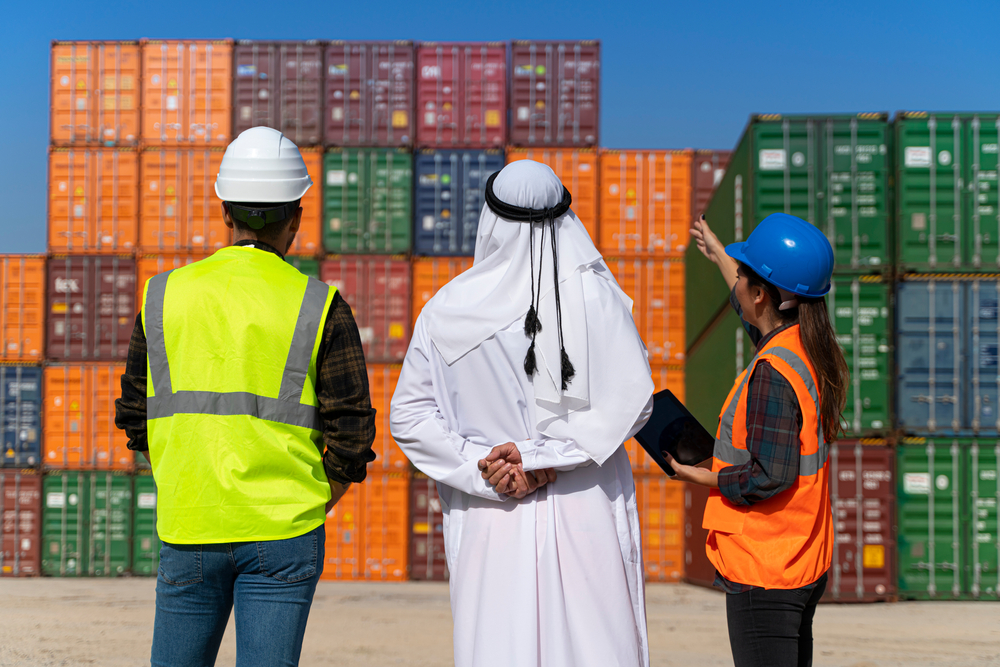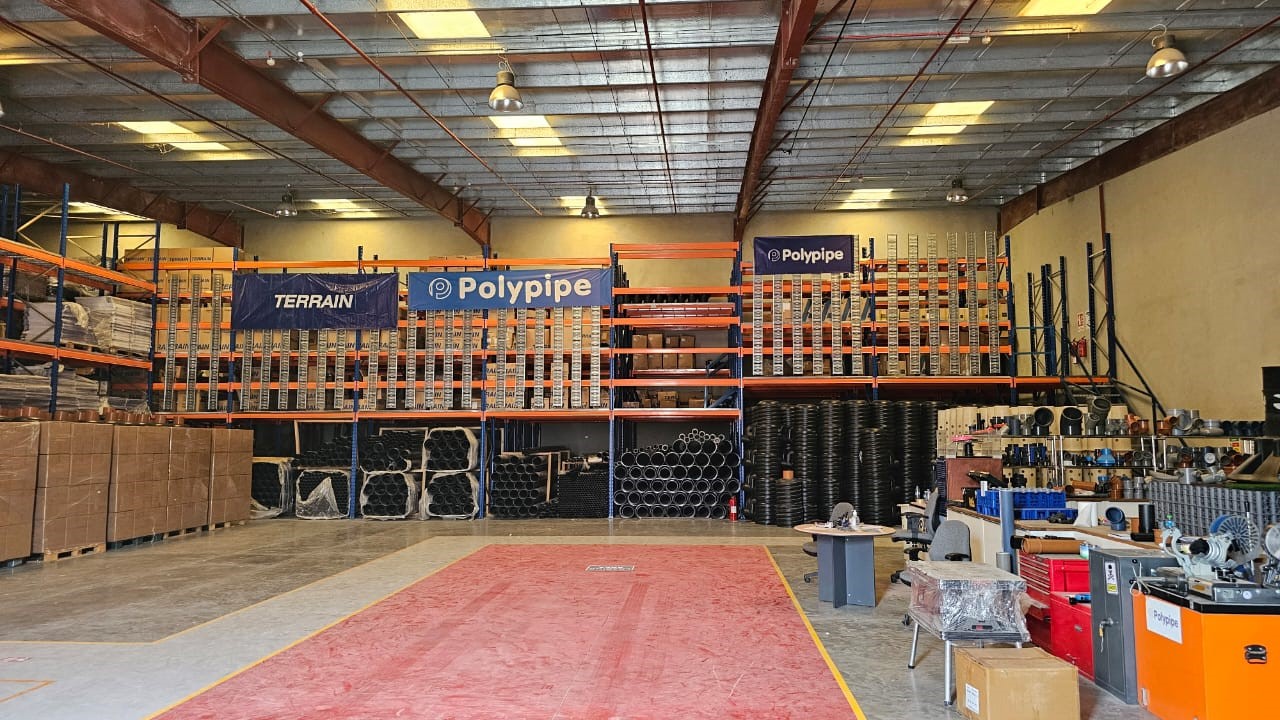Polystorm - Geocellular Water Management System
Polystorm is an efficient and versatile geocellular water management system for Sustainable urban Drainage Systems (SuDS) compliant attenuation, det

Over the past decade, the focus on in-country value (ICV) has intensified significantly, especially within the UAE and wider GCC. Governments are increasingly recognising and prioritising ICV as a vital element of their economic strategies. The term, also referred to as domestic value creation or localisation, encompasses the economic and social benefits derived from promoting and prioritising local products and manufacturing.
The discovery of oil in the UAE during the mid-20th century was a pivotal moment in its history, ushering in rapid economic development, modern infrastructure, and improved living standards. However, as the world's attention turned towards sustainability in the 2000s, oil-rich nations found themselves under mounting global pressure to exhibit a greater commitment to cleaner energy sources. Embracing sustainable development proved essential if they were to maintain their standing among the leading countries in a rapidly changing global landscape.
In light of this, ICV emerged as a crucial component of the UAE’s economic diversification strategy, bringing forth a multitude of benefits.
7 Benefits of In-Country Value
1. Develops a skilled workforce through the transfer of knowledge and technology.
When an international company establishes branches within a country, it brings along advanced technologies, state-of-the-art machinery, specialised skills, and industry knowledge that are then transferred to the local workforce. This transfer of knowledge and technology opens up avenues for career advancement. Local workers can gain specialised expertise and experience, positioning them for higher-level roles within the industry.
2. Contributes to the country's sustainable development.
Local manufacturing minimises the need for extensive transportation of raw materials and finished goods, thereby minimising the company’s carbon footprint and promoting a more sustainable supply chain.
There’s also the additional benefit of greater visibility and control over every stage of the supply chain, enabling effective monitoring of environmental practices throughout the production process. This involves ensuring responsible sourcing of raw materials, promoting eco-friendly manufacturing methods, and implementing proper waste management strategies.
3. Strengthens local supply chains and development of local industries/services.
When local industries and services experience growth, it sets off a chain reaction that positively impacts the entire local economy. The growth leads to an increased demand for goods and services from other sectors, such as raw materials, components, logistics, marketing, and financial services. As a result, these supporting sectors experience their own growth, creating a ripple effect throughout the economy.
4. Stimulates and attracts foreign investments, diversifying the economy.
The development of local industries boosts the country's global competitiveness, making it increasingly appealing to foreign investors. These investors tap into the expanding domestic market and forge valuable partnerships with local businesses. In doing so, they introduce and develop industries, technologies and expertise that promote a diverse economy.
The added diversity helps to mitigate the risks associated with overreliance on a single industry or sector, which would leave the local economy vulnerable to fluctuations and disruptions within that industry. As previously mentioned, it was this economic diversification that was the primary motivation behind ICV initiatives in the UAE and other GCC countries: to enhance their resilience and reduce dependence on volatile oil markets.
5. Contributes to the growth of national GDP and reduces dependence on imports.
ICV helps to retain more economic benefits within the country or region in order to reduce dependence on imports, and promote self-sufficiency. Through the strengthening of local supply chains and the development of local industries, ICV increases exports and offers viable alternatives to imports. This self-reliance enhances the stability of the local economy, making it less vulnerable to fluctuations in global markets.
6. Enhances spending on research & development and advanced technology.
By promoting the growth of domestic industries and businesses, ICV encourages companies to invest in R&D activities, in order to improve their products, processes, and services and stay at the forefront of innovation. The increased investment in R&D drives technological advancements and contributes to the overall development of the country's innovation ecosystem.
On February 9, 2021, the UAE achieved a ground-breaking milestone by becoming the first Arab nation and the fifth country worldwide to reach Mars. What's even more remarkable is that it is only the second country to successfully entered Mars' orbit on its first attempt. This momentous achievement showcases that the UAE is not merely an oil-rich nation known for its extravagant lifestyles, but also possesses remarkable technological and scientific capabilities, pushing the boundaries of human knowledge and innovation. The resulting shift in global perception has effectively catalysed foreign investment and enhanced the UAE's economic competitiveness.
7. Creates valuable job opportunities in the private sector.
As businesses expand and scale their operations, they inevitably require additional manpower to support increased production, distribution, marketing, and various other business functions. Consequently, new job positions are created, spanning from entry-level to highly skilled roles. However, the impact goes beyond the company itself. The ripple effect of this growth generates new employment opportunities throughout the entire value chain, encompassing sectors such as manufacturing, logistics, transportation, raw material sourcing, and related services.
The promotion of ICV has enabled the UAE to emerge as one of the world’s fastest-growing economies, with an impressive growth rate of 7.6% in 2022 alone[1]. The country has achieved this remarkable feat by cultivating economic resilience and competitiveness and evolving into a hub of innovation.
At Polypipe Middle East, we take great pride in actively contributing to the country's ICV initiatives. By manufacturing our renowned Terrain FUZE drainage systems and sustainable water management solutions, Polystorm and Permavoid, in the UAE, we are not only demonstrating our commitment to sustainability but also supporting the development of the local industry
We also fabricate road gullies at our local manufacturing facility in Dubai. The reduced lead time ensures swift product delivery and enhanced responsiveness to our clients’ unique requirements. By leveraging our regional expertise, our locally manufactured products are specifically designed to comply with Dubai Municipality and RTA design requirements.

Polypipe Middle East warehouse, Dubai, UAE
As part of the Genuit Group, Polypipe Middle East’s commitment to the local economy and society is rooted in our dedication to the collective sustainability goals outlined on the Genuit Group website. These goals encompass sustainable manufacturing practices, reduced carbon emissions, the implementation of workforce training programs and making positive contributions to the wider community in which we operate.
For inquiries on how our regionally tailored and sustainable solutions can support your next project, please reach out to our technical team:
Tel: +971 (0) 4 518 3000
Email: middleeast@polypipe.com
Polystorm is an efficient and versatile geocellular water management system for Sustainable urban Drainage Systems (SuDS) compliant attenuation, det
Permavoid is a shallow geocellular water management system aimed at managing stormwater and surface water at source, as close to where it falls as pos